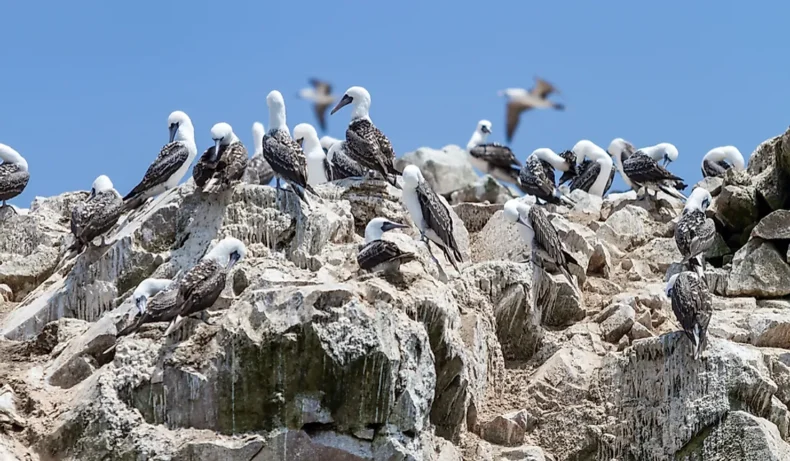Peru, the South American country has returned to its most tried and tested method to obtain fertilizers which is bird feces. Imported fertilizers are facing all-time high stock shortages and many countries around the world are now battling with the quantity decrease. This shortage of fertilizers has been a direct result of the Russian-Ukraine war.
Guano is the potent droppings from seabirds who ate fish. Enslaved African people, Chinese laborers, and indigenous people were responsible for its harvesting. The excrement has a rich history throughout the country. Empires of fortune have been made and even fallen to guano in the 19th century.
Why is Guano a preferred choice of Peruvian farmers?
Nitrogen, potassium, and phosphate content are exceptionally abundant in Guano and make it a super organic fertilizer. All these elements are important nutrients for plant growth. The importance of guano can be understood by the 1880s battle fought over its supply by Chile against Bolivia and Peru.
The current Peru government has initiated the launch of Pelicano, a naval vessel to transport Guano from the peninsula and nearby coastal regions to the Peruvian mainlands. The prices of Guano have almost tripled or even quadrupled due to it being an imported fertilizer.

Farmers who could not afford the costly chemical fertilizers are now quickly buying Guano which is sold at a subsidized price of 50 Peruvian soles. 50 soles for a 50 Kg sack of Guano is cheap, a good fertilizer from the islands, and reasonable according to the local farmers. But farmers are also concerned about the lengthy time that crop might take to ripe, which happens while using Guano. Chemical fertilizers in comparison are faster to ripen the crops.
Farmers like Segundo Cruz had told the Guardian in an interview that as the fertilizer prices keep rising, farmers have started growing a third of the number of crops than they previously used to do. Soon, this might cause a supply shortage in the market, and eventually, prices are going to skyrocket more than before.
According to the Peruvian Ministry of Agriculture, Guano supplies are not enough to make up for the amount of Peruvian farmer population, even small to medium scale farmers are around 2.4 million. Half of these farmers are also used to urea or chemical fertilizers for their crops.
Experts in rural development like Eduardo Zegerra say that while Guano is a very good organic fertilizer, there are going to be supply limitations as it is a non-renewable natural resource. According to Zegerra, an Annually estimated 40 tonnes of Guano is extracted, which at best accounts for 5-10% of the fertilizer demand nationally and therefore is very, very limited.
The United Nations’ food and agriculture organization report warn that food insecurity in Peru has doubled due to climate change, post-pandemic conditions like poverty, and global inflation. This is the perfect mixture for a storm to start brewing in Peru which will likely affect more than half of the 33 million Peruvians.
The Ministry of Agriculture has released figures which claim that compared to the average of the last seven years, imports have fallen by 58%. The price of Urea has gone up from $20 to $65, and a sack of 50 Kg of urea has tripled in price.
Peru and it’s battle with local and global problems

While current global conditions have affected Peru and led up to problems like fertilizer shortage, local factors are also a part of Peru’s troubles. The leadership of Pedro Castillo, the President of Peru can only be described as erratic and has made things worse for the country. In little more than a year, an all-time high has been reached in Peru’s cabinet turnover, almost 70 ministers have been appointed at a rate which is about one appointment every one week of a year.
It has also been revealed that Castillo, who was a former rural teacher, is Peru’s first sitting President who has been involved in cases of money laundering for which he is being investigated and had also belonged to a criminal group that included members of his family and inner circle.
He also continues to enjoy the support of people living in rural areas who come under the most affected group by the price increase of fertilizers. His background of being the son of a poor peasant farmer is viewed positively.
Zegarra has commented on this and said that the Castillo government’s Achilles heel is this issue. As long as the social base will consider the President with sympathy and even identify with him who had a rural background, they will not be held responsible. And this is precisely why the fertilizer crisis, which is a serious matter, will continue to develop.
According to him, if the problem is not resolved quickly by the government, the impact of the consequences will be very hard on the social base.













